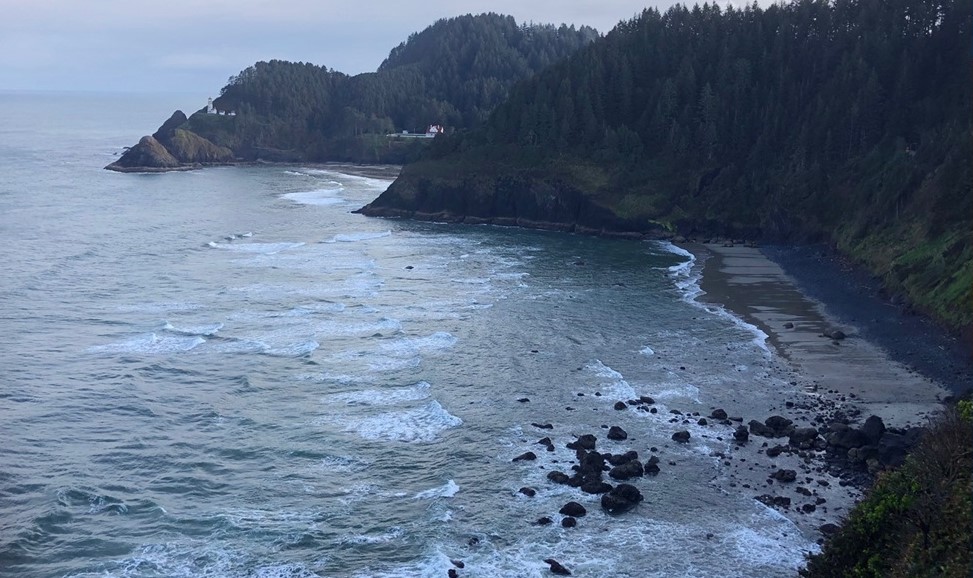Hear the author read this article (10:43)
Gazillionaires like Musk, Bezos and Branson have been spending vast sums on space travel, pursuing the fantasy of colonizing another planet. But what if one of the super-rich decided instead to invest his fortune on a strategy to mitigate climate change here on Earth?
The latter is the premise of Termination Shock by Neal Stephenson (William Morrow, 2021). This novel is set in the near future, as sea-level rise and disastrous weather events caused by global warming are threatening the survival of many regions. A wealthy Texas entrepreneur has brought together representatives from flood-prone communities like London, Venice, Singapore and the Netherlands. He demonstrates a solar geoengineering process that simulates the effects of volcanic eruptions, by launching sulphur particles into the stratosphere to reflect some of the sun’s rays and cool the planet.
I don’t really care for the far-out varieties of science fiction involving superpowers, alien invasions, time travel, etc. But realistic projections into the near future based on current technology and contemporary geopolitical conditions are of interest. Eco-fiction is becoming more popular as the climate crisis looms, led by Kim Stanley Robinson’s The Ministry for the Future (Orbit Books, 2020). Termination Shock is a worthy addition to the genre. It raises ethical, political and technological issues that are facing us in the real world.
In the absence of a global consensus, it is quite plausible that an ultra-rich, hubristic private citizen might unilaterally experiment with new technologies intended to combat an overheating planet. Then questions like these arise: What are the unforeseen side-effects of a geoengineering project like the “sulphur umbrella” depicted in this novel? How could this experiment be stopped, or should it be appropriated by some inter-governmental authority? If the technology is successful, what are the implications of halting it for whatever reason? The title, Termination Shock, refers to a disastrous climate backlash that can occur if a beneficial innovation is cancelled.
An entertaining subplot involves a young Sikh martial artist from British Columbia, a gatka stick-fighter who travels to the Punjab in search of his roots and eventually participates in border skirmishes along the disputed zone known as the Line of Actual Control, high in the Himalayas between India and China. He becomes a social media star and is recruited by the government of India to sabotage the solar geoengineers in order to restore the normal monsoon season for agriculture. This culminates in a high-tech showdown with echoes of the Old West. The eco-thriller Termination Shock is a great 700-page romp that really packs a wallop.
* * *
One of my favourite mystery writers, Peter May, has just published a futuristic novel entitled A Winter Grave (Riverrun, 2023). The setting is a remote Scottish island in the year 2051. Much of the world has been impacted by global warming. But in a perverse twist, North Atlantic currents fed by the melting Arctic ice caps have made Scotland’s climate more wintry than ever. A body is found encased in ice, and a detective familiar with the island is sent to investigate. Without giving away the plot, suffice it to say that he uncovers a conspiracy that relates to energy production in the post-carbon era.
An earlier Peter May novel, Coffin Road (2016), also has a plausible ecological theme involving the collapse of the pollinating bee population as a result of human interference.
Speculative fiction like this offers a forecast of today’s conditions into the future. But in most of May’s previous novels, several of them also set in Scotland, the present is haunted by the past. I was especially enthralled with his Lewis Trilogy (The Blackhouse, The Lewis Man and The Chessmen), which portrays life in the Hebrides, the windswept Scottish islands whose residents are challenged by the isolation, the harsh climate and their collective memory.
* * *
Amnesia is a familiar plot device in mystery tales, and memory loss launches the female protagonist of Adrift (Sourcebooks Landmark, 2023) on a voyage of rediscovery along the B.C. coast. This first novel by Vancouver author Lisa Brideau is set in 2038, when the climate crisis is well advanced. The summer weather is oppressively hot, coastal zones are flooded, and the hotel showers are equipped with excessive-use alarms. To stem the flow of climate migrants, Canada is requiring visas from American visitors.
The author of Adrift is an East Coast transplant who describes herself as “a sustainability specialist focused on climate policy and climate justice”. Brideau also knows her way around watercraft, describing her memory-challenged heroine soloing on an exhausting sailboat odyssey from Haida Gwaii to Nanaimo in search of her past.
After getting involved with a Harbour Authority officer and his troubled sister, she learns that dozens of “amnesia refugees” are being detained in the city. Then she discovers that their memory loss results from a criminal scheme in which she herself is implicated. Her effort to make things right is complicated by a massive storm rolling in from the Pacific.
Is the amnesia trope in this novel a metaphor for our desire to bury the guilt about our species’ legacy of carelessness and greed that threatens to wreck the planet? That’s a stretch. Perhaps it’s better just to read Adrift as an escapist sci-fi thriller.
* * *
Camp Zero (Knopf, 2023) offers another vision of a climate-addled future. This eco-novel shares with Adrift a Canadian-born first-time novelist (Michelle Min Sterling) and a feminist perspective. It is also set in Western Canada. The year is 2049, in the post-fossil-fuel era. Six women have been flown into Dominion Lake, a derelict former oil-producing centre in the north — think Fort McMurray, Alberta — to provide sexual services to a crew of construction workers. Meanwhile eight other women have been assigned to conduct scientific surveys at a former DEW Line outpost in the Arctic.
The backdrop is a world in ruins from climate disasters. The focus of the story is the exploitation of northern latitudes to escape excessive heat, fires and flooding in the formerly temperate zones. The author throws in some technology tweaks, such as tiny brain implants called Flicks that enable everyone to connect with the Internet, although the inventor admits privately that the Flick is actually “a data-harvesting surveillance tool”.
It turns out that Camp Zero, the prototype northern community being built at Dominion Lake, is a front for another activity that will enhance the Flick as an instrument of social control. This is one of the novel’s signals of a neocolonial American takeover of Canada. Another hint is that the aforementioned all-female Arctic survey team, in a parallel plot line, is a project of the US Army.
The dual sisterhoods are both forced to undertake violent guerrilla tactics in order to overcome their legacy of subservience to the demands of their male overlords. This feminist theme of Camp Zero is a bit heavy-handed for my taste, but it leads to a hopeful conclusion.
* * *
I guess the trick to enjoying science fiction is the reader’s ability to suspend disbelief at what may be outrageous plot devices, usually involving future technologies. But if the author is making a deeper (and somewhat credible) point about human nature in a time of ecological crisis, this genre can help to engage more people in the effort to understand and respond to our urgent dilemma. And in the case of the four novels summarized above, climate fiction can be fun to read too.





